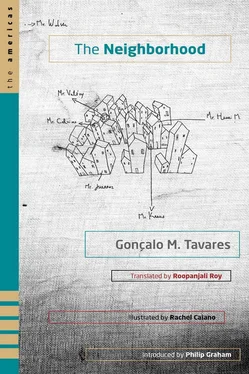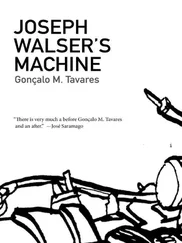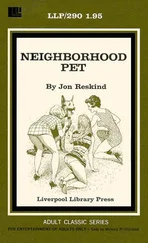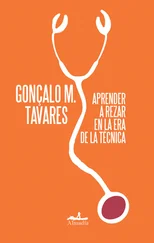However, to make up for it, it was almost noon. Time was passing by.
Calvino, it must be added, did not like to stop (to see shop windows?!) — he liked to walk.
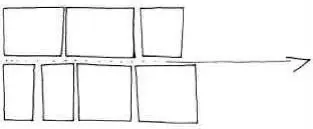
He did not like to accelerate or slow down his pace.
When he was late, he did not speed up. He would simply arrive late.
And he hated waiting. Therefore, when he knew that he was early for a meeting he did not change his route, but instead changed his trajectory within it. He did not stop. He walked down the same street, but in a different way.
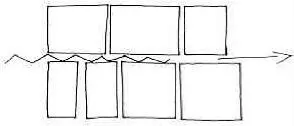
When he was very early, he would do this
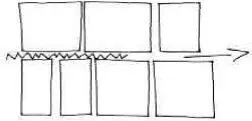
And when he was really very, very early, he would do this
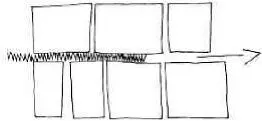
He was now walking down the street at a merry pace, as though the (faceless) muscles in his legs had a millimetric technique of being in a good or bad mood. In fact, his legs were in a good mood, there was just no other way of describing it.
At that moment a pair of lovers walked by him, who, in between nibbling each other’s lips and murmuring words less than a centimeter away from each other, were having a great deal of fun in that minuscule space between them, where someone had undoubtedly built an amusement park that was invisible to other people.
Calvino particularly noted the impeccably stupid face of the man in question. “He lacks ideas,” he thought, “but for the time being he is not missing them: he’s in love.”
Subsequently, Calvino’s attention was captured by the beating of his heart, as though it were a sort of regular and monotonous music. With his hand on his breast he carefully listened to that wearying music, aware that, after all, this was what allowed him to stay alive. The repetition saved the organism from inside, but on the outside it was indispensable to be prepared for surprises, invasions, defeats, sudden leaps, and other perils.
In a certain way, Calvino did not remember the novelties that were in store for him tomorrow — and this cheered him up immensely. He had forgotten what was going to happen the following day — and this lack of recollection, which is commonly called an inability to predict the future — was a kind of existential reference.
Of course, he never made errors like this:
Buying a (very expensive) ticket, to enter a place where there was no space.
Suddenly, however, he was interrupted. When one is thinking (thought Calvino) one is interrupted as though one was doing nothing at all, people talk to one as though they were talking to an idler:
“Sir … where is rue Le Grand?”
Calvino immediately replied, “First right, then second left. Then go up the street till the end and there it is. It’s a long walk,” he murmured, sympathetically, to the lost man.
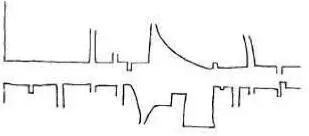
The man thanked him and went away.
Calvino had no idea where rue Le Grand was located.
Calvino did not have enough words to go a day without making things up (some people called this lying). He shrugged his shoulders. It was not a question of revenge, since Calvino was not someone who harbored such feelings. It was simply a reaction to a refined rudeness, this mania that the world had, of disorientingly interrupting, at all hours of the day, those who were lost in their thoughts with requests for clarifications.
“It’s just like this, but backward.”
This was Calvino’s favorite method of enlightening people.
However, he had had no time to enlighten the nice gentleman. It’s just as I told you, but backward. He did not feel guilty. Not at all: to ensure that people got lost in the neighborhood was an act of generous compassion. Just like someone who takes great pleasure in showing people a film or a book they liked, Calvino likewise knew that if people went directly to their destination, without any detours, they would never have the opportunity to see and discover corners that only men who are completely lost discover.

Apart from which, he had known for a long time that it was an intolerant world.
It was possible to spend an entire day telling lies, but it was impossible to spend it telling the truth. All personal and social relationships, and relations between nations, would collapse.
Calvino also knew that a sentence did not have enough space to accommodate the truth; this was not something that could be written or spelled out, but was something that just happened. Like an earthquake or a chance encounter with an old friend at a street corner. Calvino knew that the truth was illiterate.
And there, quite literally, upon turning the corner, was an old friend: the city museum.
Well, since he was in front of the museum, why not go in?
But that was a strange museum.
Anyone who enters a place where musical instruments are on display has the unpleasant sensation of being deaf. Calvino slowly smacked his right ear three times, and then the left one. No, this had to be seen.
There was an exhibition of musical instruments and, in another room, paintings (in glass cases) on display for the blind.
It was as though sensory organs had fallen to the ground and the museum director had mixed up locations and functions while restoring them.
In another hall, photographs of great artists from past centuries were on display.
“A simple calculation,” thought Calvino, “would allow us to detect an insoluble enigma: the number of people who were considered to be ‘great artists’ after they were dead is far greater than the number of people who, in preceding years, when they were still alive, were considered to be ‘great artists.’”
The only rational conclusion that can be derived from this is that death is good for art. If all artists were immortal, it is quite likely that we would not yet have a single “great artist.”
“It could even be said that it is just as well that they are not immortal,” thought Calvino.
A hair in a painting! — how that fascinated him! Just like a cook tends to insistently leave a hirsute hallmark on the product of his art, painters do the same. It was another kind of signature.
This remarkable event — a painter who had left one of his hairs on the painting as though crushed upon the thick paint, an eighteenth-century hair — caused an internal digression in Calvino’s mental perambulations that made him think of a children’s tale. The story went something like this:
A princess was brushing the hair of the king, her father, when she found a flea in his locks. The king told her, “Don’t kill it, it will grow and could be useful.” Well, the flea grew and slowly transformed itself into a prince. The princess fell in love; married him; and when, years later, they began to grow old, she noticed that her husband was now just like her father. The erstwhile prince, who was now the king, had a daughter who, at that precise moment, was brushing his hair. This second-generation princess also found a flea and asked her father, the king, “Do I kill it or do I let it grow?” The king was about to respond, but he was suddenly interrupted by the queen, who yelled at her daughter, “Kill it immediately!”
Читать дальше
